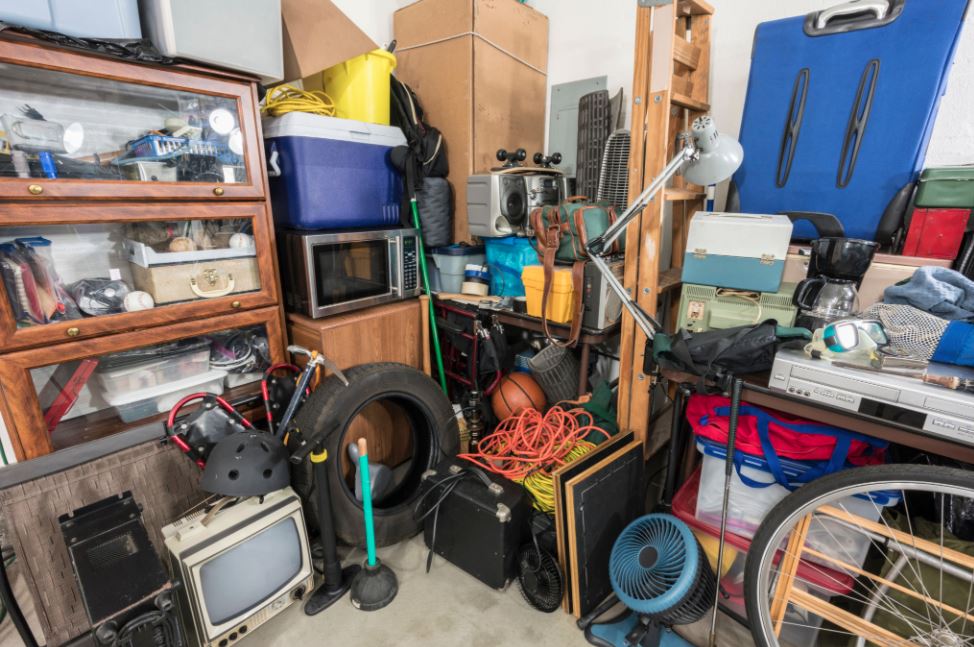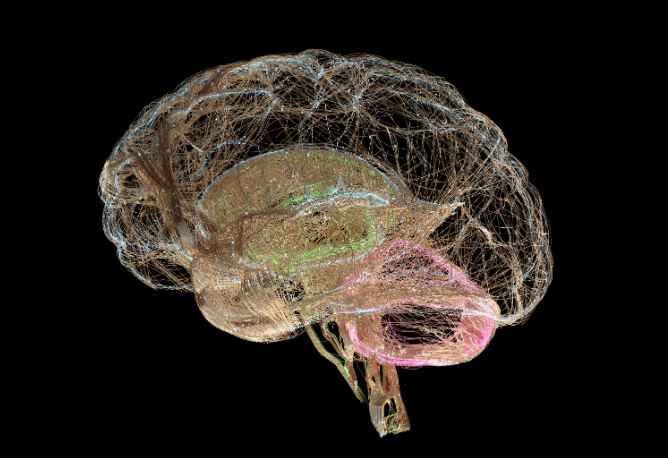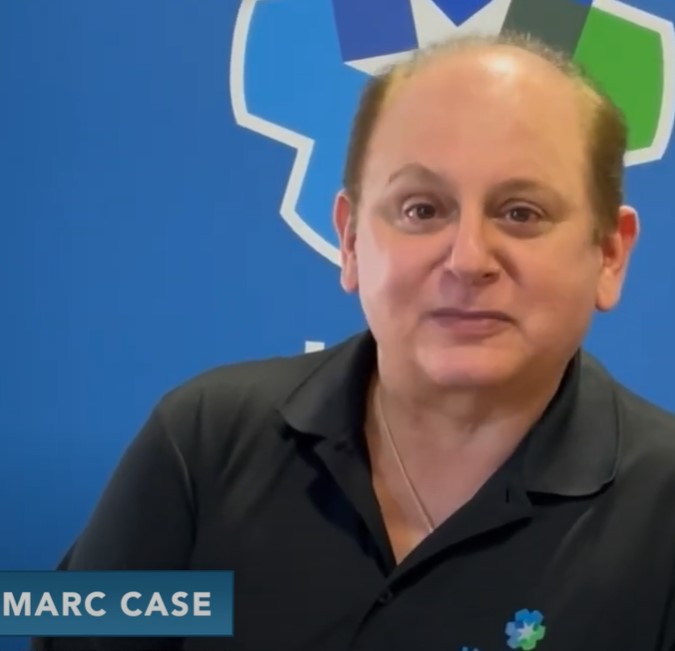Recognizing the signs of hoarding disorder is crucial to support those affected in seeking assistance from mental health professionals. This comprehensive guide aims to provide valuable information on identifying these signs, empowering you to take appropriate action when necessary, with the support of MasterTech Environmental Jersey Shore’s expertise and services.
MasterTech Environmental Jersey Shore, serving towns throughout Ocean and Monmouth County, NJ, understands the severity of hoarding disorder as a health and safety concern. With its profound impact on individuals’ physical and mental well-being, as well as the creation of hazardous living conditions caused by the accumulation of biohazardous materials, hoarding disorder demands attention.

What Is Hoarding Disorder and the Signs of Harding Disorder?
Hoarding disorder is a legitimate mental health condition that affects up to 6% of the population. It is a form of obsessive compulsive disorder. This is characterized by the excessive accumulation of possessions that are deemed to have little or no value, along with the inability to discard them.
As local, Toms River, NJ hoarding cleaning specialist, we’ve seen these hoarded items eventually clutter living spaces to the extent that they impede the use of rooms, prevent proper cleaning, and sometimes pose health and safety hazards.
Hoarding behaviors are not a lifestyle choice or simply the result of poor organization skills. Instead, it is a complex and challenging disorder that requires specialized treatment. If you or someone you know is struggling with hoarding disorder in Toms River or the surrounding areas in Monmouth and Ocean County, NJ, seek help from a mental health professional who can offer individualized therapy and support.
Common Signs of Hoarding Disorder Symptoms

Absentee Functioning
You may notice that people with hoarding disorder become absent from their daily routines. For instance, instead of taking care of their home, attending to their personal hygiene, or engaging in social activities, they spend most of their days accumulating items and tending to their hoard. This pattern is often a tell-tale sign that should not be ignored. But do not mistake other mental health conditions for hoarding based off of this since it is a relatively common mental health related symptom.
Refusal to Discard Items
One of the most ubiquitous signs of Hoarding Disorder is the inability or refusal to get rid of items that have no value or are of no use. Such individuals may harbor a fear of parting with items that evoke sentimental value, no matter how insignificant or broken down they are. They may also have an underlying anxiety about wasting materials that could come in handy someday. This anxiety may lead to hoarding items that serve no practical purpose.
Decision Making Difficulties
Hoarding Disorder much like many other mental disorders can also manifest as difficulties with decision-making. Such individuals may struggle with organizing their hoard, but they cannot bring themselves to let go of anything. This behavior intensifies over time and may eventually lead to a displacement of possessions that turn into a safety hazard.
Poor Quality of Life
In extreme cases, hoarding can lead to unsanitary living conditions that undermine the quality of life for the hoarder and those around them. The build-up of items, coupled with poor hygiene standards, can pose a health risk. For example, hoarding food can result in an infestation of pests, which may carry diseases. Forgotten items may attract mold or bacteria, releasing toxic fumes that can be hazardous to health.
Social Withdrawal
Lastly, social withdrawal is a common sign of Hoarding Disorder. Hoarders may prefer the company of their possessions to that of people, avoiding social contact or downgrading the significance of socialization. This can lead to isolation and have a negative impact on their emotional, mental, and sometimes physical health.
Call 732-716-2384 or Contact Us to speak with a Toms River Hoarding Cleanup and Biohazard Remediation Specialist
How to Help Those with Signs of Hoarding Disorder
Having a loved one or friend who is affected by hoarding disorder is never easy, but there are ways that you can help. One of the best things that you can do is to approach the situation with empathy and understanding. It’s important to recognize that this is one of many anxiety disorders that require professional help.
Encourage your loved one to seek therapy and see a medical professional for their condition. Offer to help with the process by researching potential therapists and doctors or even driving them to appointments. Additionally, don’t judge or shame them for their behavior- instead, listen to their concerns and offer support. With patience and compassion, you can help your loved one on the path to recovery.
The Dangers Of Hoarding Disorder
Increased risk factors such as fire hazards
One of the most significant dangers of hoarding disorder is the increased risk of fire hazards. Due to the large amounts of debris and clutter that accumulate over time, it becomes much harder to maintain a safe and fire-free environment.
Additionally, hoarders often tend to hold onto items that are highly flammable, such as old newspapers, books, or clothing made from synthetic fibers. This combination can lead to devastating fires that can easily spread and cause serious injury or even death.
Health hazards from accumulated debris and waste
Another major hazard associated with hoarding disorder is the health risk from accumulated debris and waste. Hoarders often fail to maintain a clean living space, resulting in the presence of mold, dust, and other allergens that can lead to respiratory issues and other health problems.
Furthermore, hoarders may neglect basic hygiene practices, such as washing dishes, cleaning the bathroom, or doing laundry, which can lead to further growth of bacteria and germs that can pose a serious health risk.
Structural damage to the property
Hoarding disorder can also cause significant structural damage to a property. The weight of accumulated debris and items can cause walls, floors and foundations to weaken and become unstable over time. This can result in severe water damage, dampness, and weakened structures, which can compromise the safety and habitability of the property. Additionally, hoarders may engage in unsafe DIY repair and construction activities, further risking the structural integrity of their homes.
Increased risk of falls and accidents
Hoarding disorder also poses an increased risk of falls and accidents. With an overwhelming amount of clutter and debris in a living space, it becomes much harder to navigate around the home safely.
Hoarders may also stack items to dangerously high levels or create unstable piles that can easily topple over and cause serious injury. These types of accidents can also happen to local Jersey Shore cleaning crews that may need to enter the home.
Difficulty for emergency responders to navigate the space
Hoarding disorder presents significant difficulty for emergency responders to navigate the space. In the event of a medical emergency, firefighters, paramedics, or police officers from Toms River, Berkeley Township, Brick, NJ or other surrounding towns in Monmouth and Ocean County, NJ may struggle to enter the home and navigate to the scene of the incident due to excess clutter and debris. This can cause serious delays in receiving much-needed medical attention or other assistance during critical times.

Do People Hoard Animals?
Animal hoarding is a serious issue that affects not only the hoarder but also the animals involved. It is a widespread problem that takes a toll on the animals’ welfare and causes emotional and physical harm to both the hoarder and the animals. Some people hoard animals to satisfy their emotional needs, while others do it unknowingly due to a lack of education on proper pet care.
No matter the reason, it is essential to seek help for animal hoarding to prevent further harm. Animal control and animal welfare organizations offer resources and support to help break the hoarding cycle. It is crucial to understand that proper pet care requires time, space, and resources, and hoarding animals is not a solution.
When To Hire A Professional For Signs of Hoarding and Hoarding Cleanup Near Toms River, NJ
Hoarding behavior is a difficult and complex issue that affects many people around the world. It can cause physical, emotional, and social distress for both the hoarder and their loved ones. While it may be tempting to try and clean up the hoard on your own, it’s important to recognize when it’s time to hire a professional for hoarding cleanup.
MasterTech Environmental Jersey Shore is a trusted provider of hoarding cleanup services and estate cleanout services in towns throughout Ocean and Monmouth County, NJ. Our team of professional hoarding cleanup specialists is highly trained to approach hoarding situations with care and compassion, prioritizing the safety and well-being of everyone involved.
With our expertise and proper equipment, we ensure the proper disposal of items, mitigating potential health hazards effectively. If you find yourself feeling overwhelmed or unsure of how to handle a hoarding situation, it is in your best interest to seek the assistance of our experienced professionals at MasterTech Environmental Jersey Shore.
Final Thoughts About Hoarding Disorder
At Mastertech Environmental, we understand that hoarding is a complex mental health condition listed in the Diagnostic and Statistical Manual of Mental Disorders (DSM). It can have serious consequences and may sometimes be linked to other conditions such as Attention Deficit Hyperactivity Disorder (ADHD). Approaching hoarding disorder with empathy and understanding is crucial when providing treatment and support.
If you or a loved one is struggling with hoarding disorder, it is essential to seek help from qualified professionals who have experience in handling these delicate situations safely and compassionately. At Mastertech Environmental, our team is trained to provide the necessary support and guidance for those affected by hoarding disorder.
With patience, understanding, and the right support system, treating hoarding disorder is achievable for those willing to take the first step toward seeking assistance. Reach out to us today to explore the available treatment options and embark on the journey toward a healthier, clutter-free life.

